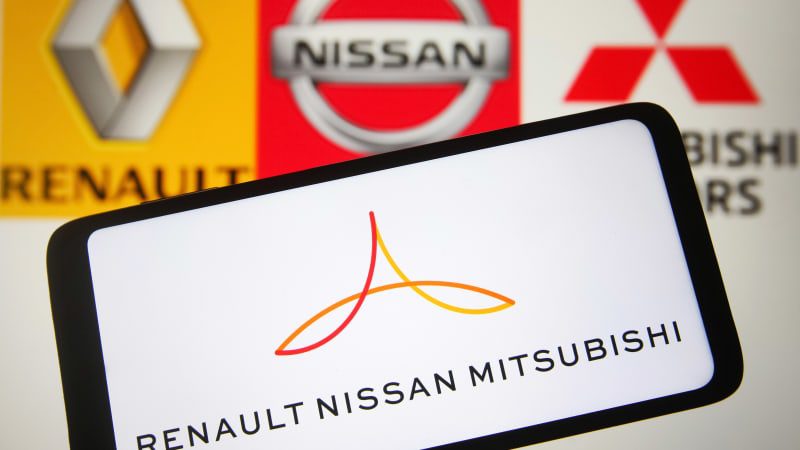Renault-Nissan alliance reboot will kick off with five projects

Renault SA and Nissan Motor Co. are moving ahead with a plan to recalibrate a two-decades-old alliance that had weakened over time, starting with a range of industrial projects alongside an agreement to rebalance capital ties, according to people familiar with the situation.
Top executives from the alliance partners held an operating board meeting on Thursday, giving a nod to bringing Nissan and Renault’s cross shareholdings to an equal level, as well as common projects as part of the reshaped cooperation, the people said. The partners also agreed on an alliance event to be held on Feb. 6 in London to present details of the plans, the people added, declining to be named discussing details before they are public.
Under the landmark plan, Renault is expected to cut its 43% stake in Nissan to 15% via an orderly disposal of shares over time to eliminate lopsided capital ties that have been a source of friction for years. The tentative agreement comes after years of tension that at one point spilled over into Japanese-French politics when Renault-Nissan’s then-leader Carlos Ghosn weighed to merge the two companies.
The partners also agreed to continue collaborating on various industrial projects, a condition that was crucial for Renault to obtain approval for the rebalancing from its most powerful shareholder, the French government.
Media representatives for Renault and Nissan declined to comment. The boards of directors of the respective companies will have to approve the agreement in meetings to be held in coming days, the people said.
Code name: ‘Reloaded’
The redesigned alliance will allow Chief Executive Officer Luca de Meo to move on with a complex split of Renault into five separate businesses, including carved-out electric-vehicle business Ampere and to deepen ties with a series of other partners, including China’s Zhejiang Geely Holding Co. and Qualcomm Inc., the people said.
“The interest for each of the partners is now to be able to move forward without, for example, Renault’s management getting distracted in endless trans-national politics,” says Stifel analyst Pierre-Yves Quemener. Failure of the talks would have been “a negative,” Quemener said.
Renault, Nissan and junior partner Mitsubishi Motors Corp. will embark on roughly five projects initially, codenamed “Reloaded,” with others to follow, the people said. One of them involves India, where the companies operate a plant on the outskirts of Chennai making small cars, engines and gearboxes, and another for joint work on commercial vehicles, said the people. Other projects will see closer collaboration in Latin America, another person said.
Renault has proposed work on 10 common projects, the people added. On top of that, Nissan also plans to invest in Renault’s Ampere, they said.
The desire to move forward with specific common activities as part of the three-way pact signals the companies see a joint future for an alliance that had to be pieced together again after 2018’s arrest of Ghosn. Renault-Nissan can ill-afford to waste synergies in the increasingly competitive shift to electric cars. The wide-ranging agreement follows months of tense negotiations to save a 23-year-old partnership, with the talks almost collapsing late last year.
The alliance over the years led to joint plants, parts purchasing and — importantly — development of common underpinnings for a range of vehicles to save costs, creating one of the biggest automotive groups in the world in terms of cars sold.
Still, a complex organization, cultural differences and missteps over the years almost destroyed the partnership. Improving existing collaborations is crucial for both Nissan and Renault to keep up with competition from Tesla Inc., Chinese automaker BYD Co. and other new entrants.
Renault Chairman Jean-Dominique Senard and de Meo participated in Thursday’s alliance meeting via video conference. While they had initially planned to travel to Japan for the event, progress in the negotiations made the trip no longer necessary, two people said.
Related video:




